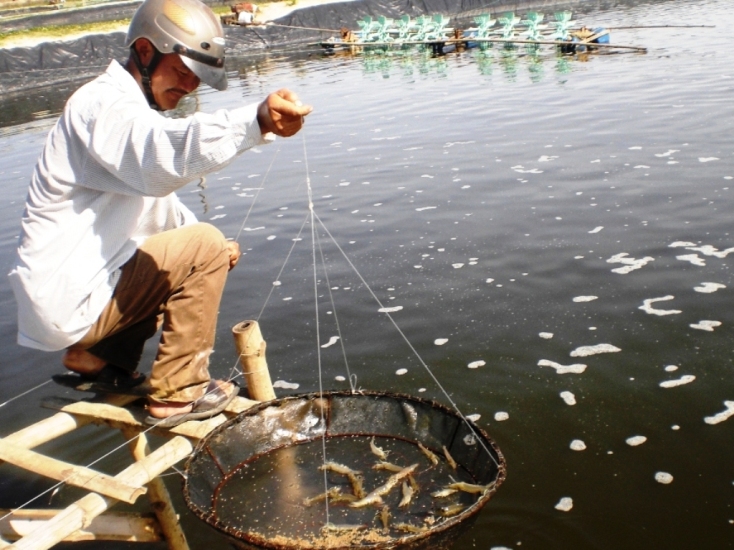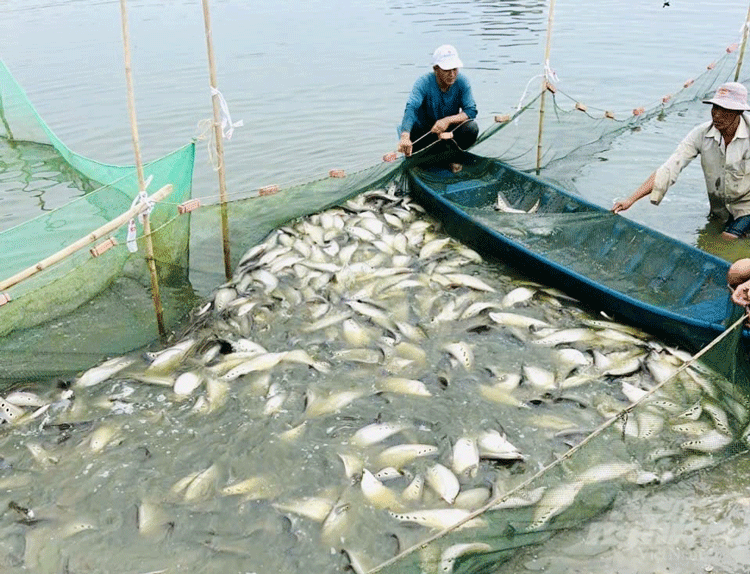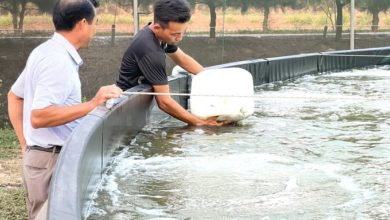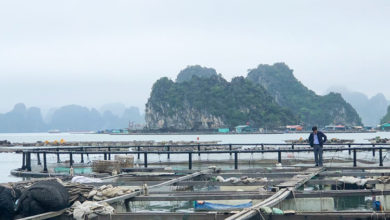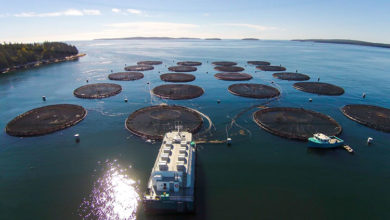Nam Dinh: Billions of dollars from VietGAP’s parents
“Dare to think, dare to do”, boldly invests, currently Mr. Mai Quoc Huy, hamlet 11, Giao An commune (Giao Thuy district, Nam Dinh province) owns a farm that meets VietGAP standards every year for sale tens of tons of commercial tortoiseshell products and nearly 100,000 varieties of tortoiseshell, earning a profit of over 1 billion VND.
Visiting many successful turtle rearing models in the West, and at the same time learning and carefully studying the ecological characteristics and economic values of tortoiseshell turtles, Mr. Huy realized that this is the most viable object for breeding. “get rich” for the family. In 2012, he decided to start a business, invested capital to renovate the pond, and bought 200 varieties of tortoiseshell to release.
After more than 2 years of care, special attention was paid to handling the rearing environment well clean food, ensuring the breed so that the herd grew quickly, and selling him a good income. “Of the field embankment” – each year he uses the profit to rent more land in the commune’s aquaculture planning area to expand the farming scale, continue to invest, dig more ponds, and gradually improve the technical infrastructure of the area. rearing, and at the same time researching and building a herd of three parents and successfully reproducing three breeds.
Just like that, after more than 10 years of starting a business, building, and developing, Mr. Huy has expanded the area for raising turtles to 3ha with a system of 30 continuous farming ponds and separate areas for breeding turtles, hatching areas. , the nursing area for three newly hatched three, the nursing area for three varieties. All three ponds are designed by Mr. Huy methodically and scientifically with each pond no more than 1,000m2 wide for convenient management and care. In the pond, there is a floating beach for the three to eat and sunbathe, installing a modern drainage and drainage system.
In addition, Mr. Huy also invested in much other equipment for raising three or three farm sizes such as a feed mill, food freezing room, trolley…
Currently, Mr. Huy’s farm raises more than 100,000 tortoiseshells, including 1,000,000 commercial products and 90,000 tortoise varieties. He chose the Taiwanese three-flowered variety, with few diseases, easy to raise, of moderate size, after about 2.5 years, the weight can reach 1-2kg and can be harvested. To proactively source good seeds, he invested from the barn for the parents to give birth to the brooding, elaborate rearing tanks and built a standard herd of parents with more than 4,000 children.
Sharing about his technique of raising turtles, and his “secret”, Huy emphasized that he must regularly monitor and capture the development stages of the turtles. When they reach the reproductive stage, the male and female must be separated in the ratio of 1 male 4-5 female. If the number of males is high, it is easy for the male to kill the female. Eggs are placed in an incubator to maintain a temperature of 30-32oC. Newly hatched turtles are put into the rearing tank for about 30 days and then brought out to the breeding pond. When the three varieties reach 400-500g in weight, they can be sold or transferred to grow-out ponds.
With more than ten years of experience in raising turtles, Mr. Huy said: Although taking care of turtles is quite easy, farmers need to regularly check the amount of food to avoid excess food polluting the pond environment. , since then they are prone to fungal diseases, bacterial ulcers, neck swelling… If any animals are found showing symptoms, they need to separate the herd and treat the pond environment with biological products and lime flour.
During the farming process, starting with the start of the farming season, Mr. Huy always focuses on carefully treating the pond, disinfecting the sludge and the culture environment, and regularly checking and disinfecting the water periodically with lime powder. , salt, potassium permanganate, and biological products to ensure the safety of the three. The food source for the tortoise is mainly pureed trash fish mixed with rice bran and probiotics to help them digest well and grow quickly. In 2020, Mr. Mai Quoc Huy’s turtle farm was granted VietGAP certificate when it fully met the requirements of quality, food safety, and hygiene, applied a safe farming process, and ensured environmental hygiene. school.
Recently, the COVID-19 epidemic raged but did not affect his business much because of the long time of raising papa and the application of the method of raising litters, so he did not have to harvest massively but can “pruning”, sold all year round. The three are also the subjects that eat less, so the cost of maintaining the herd is not much.
Every year, the farm sells 60-70 tons of commercial products and over 100,000 seeds to the market. According to Mr. Huy’s accounting, after deducting all expenses, his family earns a profit of over 1 billion dongs each year from selling bread and meat. Not only providing good breeders for growers of commercial products, but Mr. Huy also enthusiastically guides, transfers farming techniques, and sells commercial products to farmers in the region.
Currently, Mr. Mai Quoc Huy’s father’s farm is becoming a prestigious supplier of breeders, and at the same time opens up a new direction to bring the fatherland far away, bringing maximum profits to farmers.
VFM


